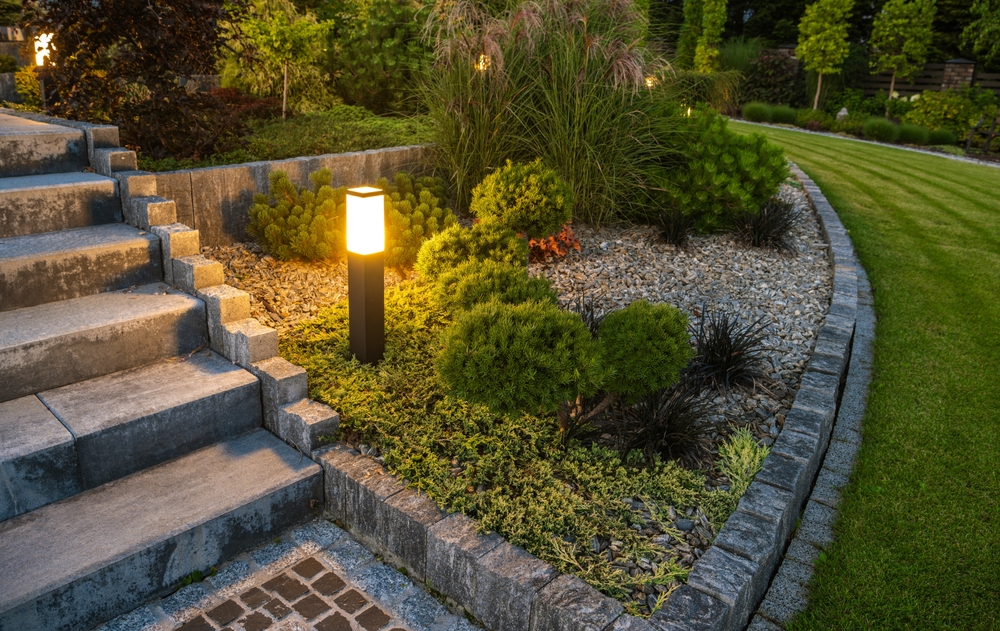Creating a harmonious outdoor space often involves a delicate balance between hardscaping and landscaping: greenery, vibrant flowers, a stone patio with a cozy fire pit, and a pathway that guides you through the whole space. Though often mentioned together, hardscaping and landscaping serve very different purposes and bring unique benefits to your outdoor design. But what truly sets them apart, and how can you use both to transform your property into a stunning oasis?
The Green World Landscaping and Hardscaping team will clear your doubts in this blog. We’ll walk you through the definition of hardscape vs landscape, the design elements of each, how to balance them both for a cohesive design, and some key differences in terms of costs and maintenance. So keep reading to discover valuable insights that will help you enhance your outdoor living space!
What is Hardscaping?
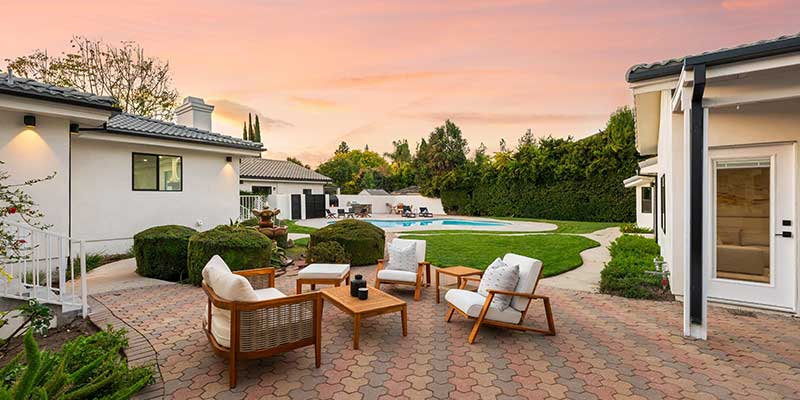
When you think of outdoor spaces, you might first envision lush gardens and sprawling lawns. However, hardscaping plays a crucial role in shaping these environments. Hardscaping refers to the non-living elements in your outdoor project, typically crafted from durable, hard materials such as natural stone, poured concrete, pavers, and brick.
Design Elements in a Hardscape
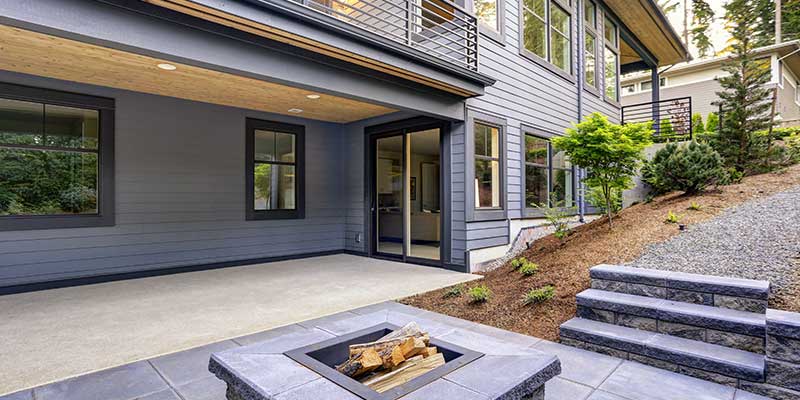
- Retaining Walls: Retaining walls are one of the most functional elements in hardscape designs. They help maximize usable space on sloped yards by creating level areas, improving water drainage, and preventing soil erosion.
- Walkways: Walkways are ideal for connecting your outdoor areas, guiding foot traffic, and adding flow and structure to your landscape.
- Driveways: Driveways, on the other hand, serve as a strong first impression and a practical entry point for vehicles. They offer durability and enhance your front yard’s curb appeal.
- Patios: Patios are the foundation for outdoor gatherings, dining areas, or quiet retreats. They are highly customizable, allowing you to turn your yard into a purposeful space.
- Focal points: Lastly, outdoor features like fire pits, outdoor fireplaces, columns, or fountains give your yard a touch of personality and visual appeal.
What is Landscaping?
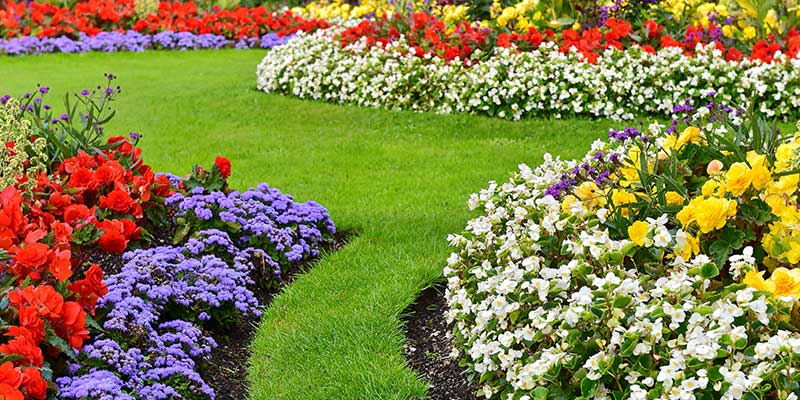
While hardscaping provides the framework for your outdoor space, landscaping brings it to life with vibrant colors and textures. landscaping encompasses all the living elements in your yard, from trees and blooming flowers to lawns and ornamental shrubs, fostering a sense of harmony, well-being, and connection with nature. A special thing about landscaping is that it never looks the same, evolving over time and offering new and exciting experiences with each passing season.
It’s also important to note that the term landscape is sometimes used to describe the entire outdoor space, including living and non-living elements. However, in the context of design and maintenance, landscaping refers specifically to your space’s living components.
Design Elements in a Landscape
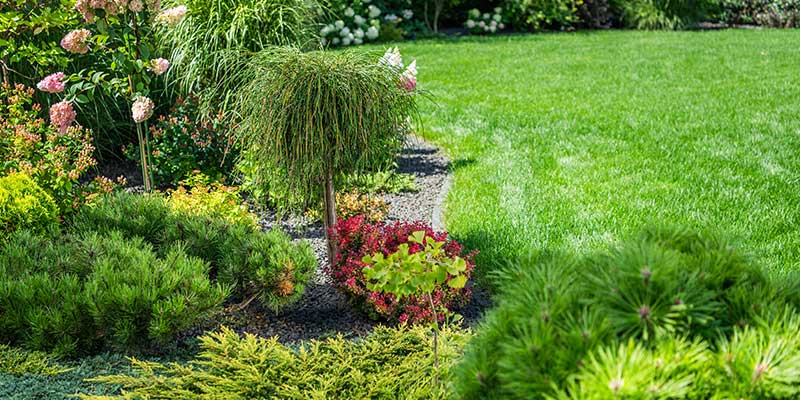
Landscaping design elements are about bringing life, movement, and seasonal beauty to your yard. Here are some of our favorites:
- Lawns: Lawns are perfect for providing an open, green space that softens the hardscape elements of your garden. They can be established from seed or through sod installation.
- Flower beds and plant borders: These provide texture, color, and seasonal interest throughout the year. They complement walkways beautifully by framing them and enhancing the flow of the overall space.
- Trees: These add height, shadow, and long-term visual impact. They can also serve as focal points of the landscape.
Balancing Hardscape and Landscape for a Cohesive Design
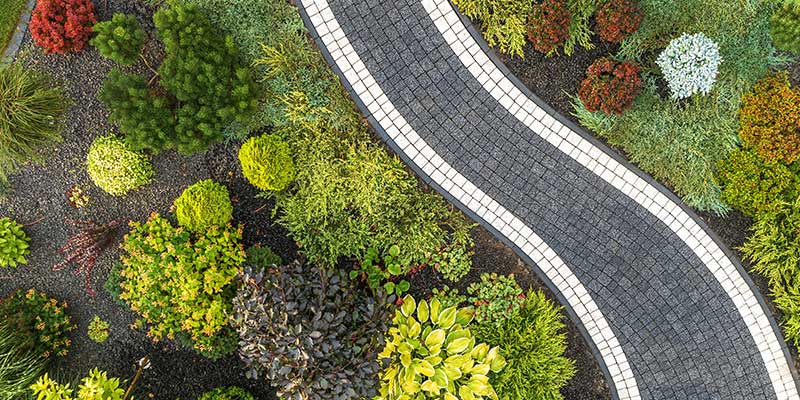
Maintenance Differences and Cost Considerations
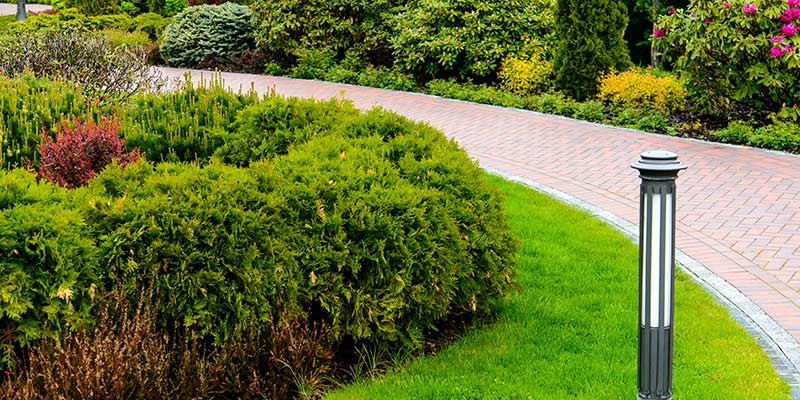
The level of maintenance required is one of the main differences between hardscapes and landscapes. Hardscape installations are largely “set it and forget it”; pavers and masonry need minimal attention for years after sealing or occasional power-washing. Living landscapes, by contrast, require weekly mowing or trimming, seasonal care, mulching, irrigation checks, and periodic re‑planting .
In terms of upfront costs, hardscape projects are often more expensive and require more labor than landscape ones, but the low upkeep they need makes them a great investment. On the other hand, landscapes may start cheaper, but recurring water, fertilizer, pruning, and general maintenance can increase costs over time. But savvy homeowners are mixing the two of them: a durable patio bordered by drip‑irrigated beds, or a low‑wall seating area softened by native groundcovers, to control maintenance hours and still enjoy lush surroundings.
Find Your Perfect Hardscape and Landscape Design
Now that you’re comfortable with the nuances of hardscape vs landscape, you might be picturing the right mix of stone paths, seasonal color, and year‑round comfort for your own yard. If you’d like a second opinion, or simply some fresh ideas from professionals, the team of outdoor contractors at Green World Landscaping and Hardscaping is always happy to listen and share practical guidance.
Feel free to reach out whenever you’re ready, and we’ll help you design and build your perfect yard.


